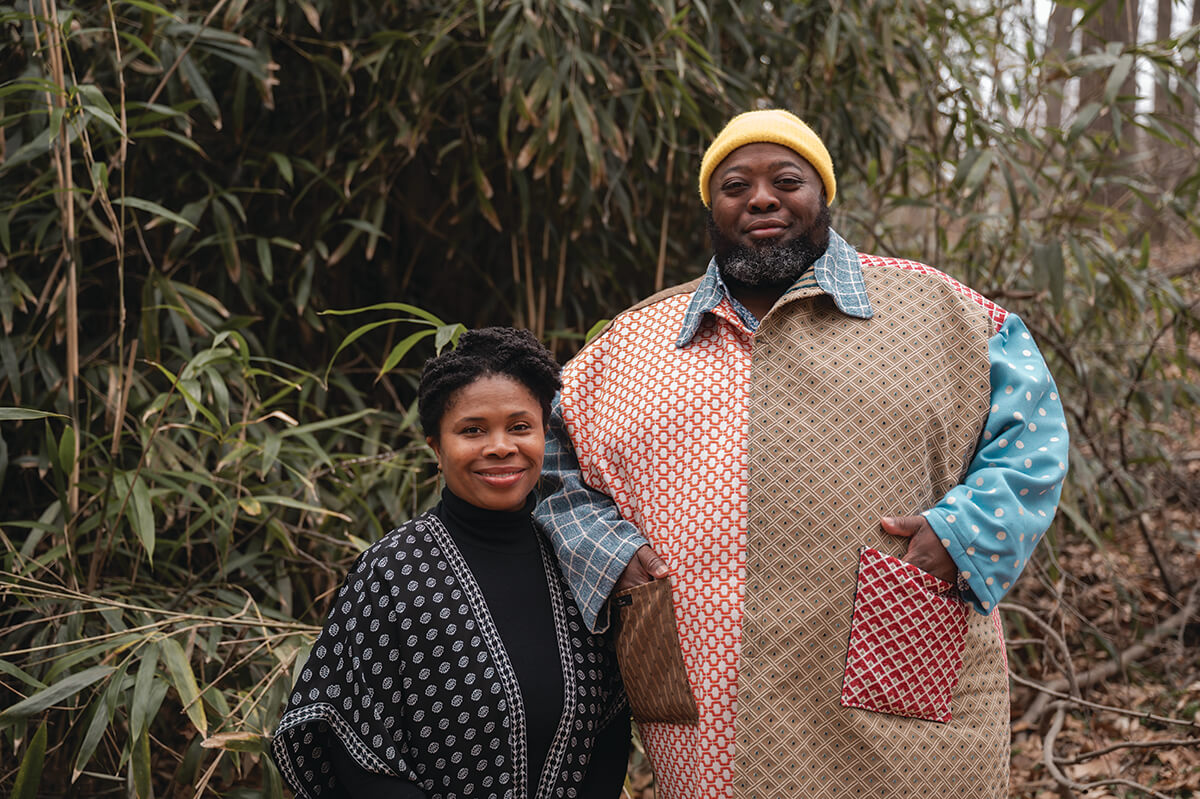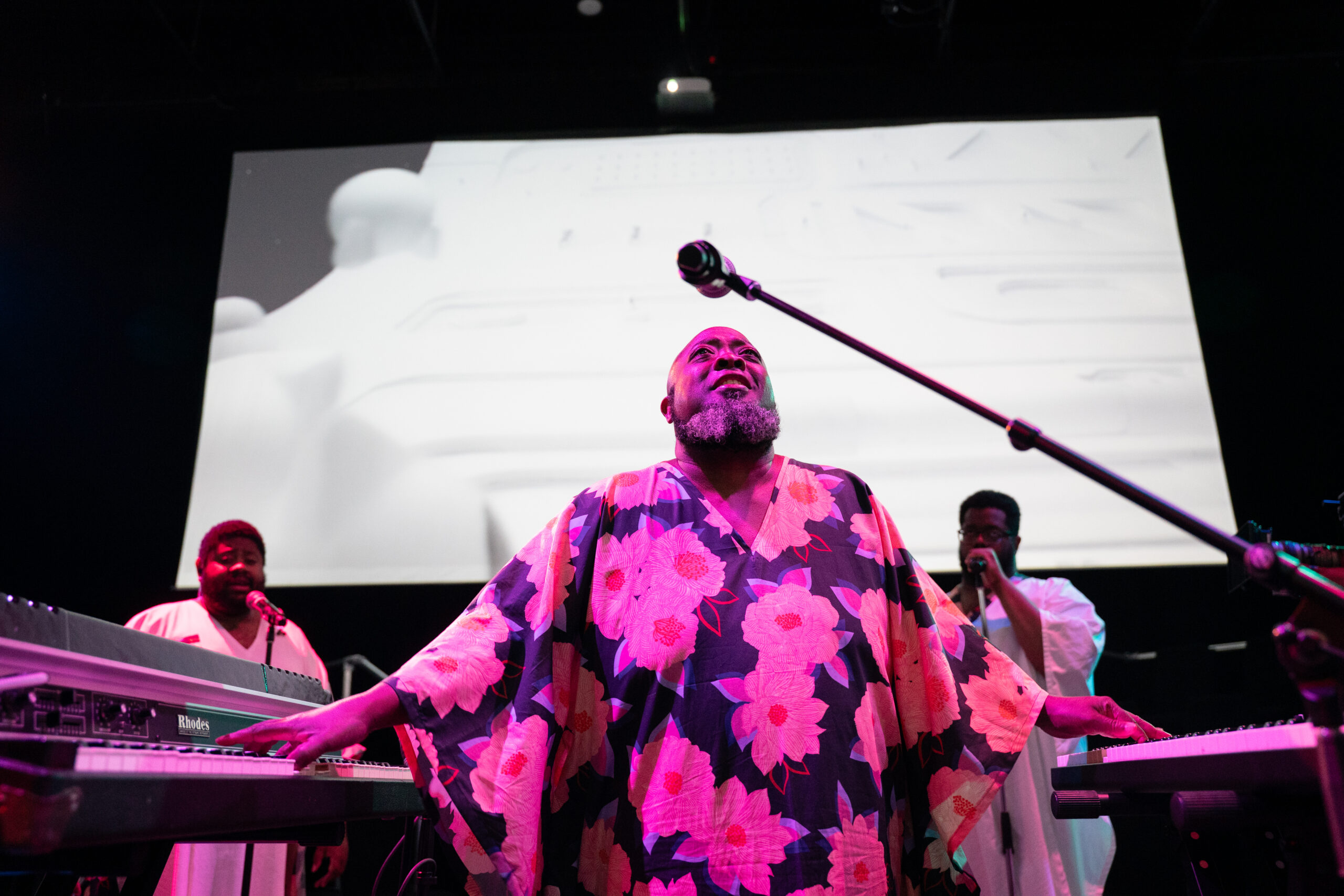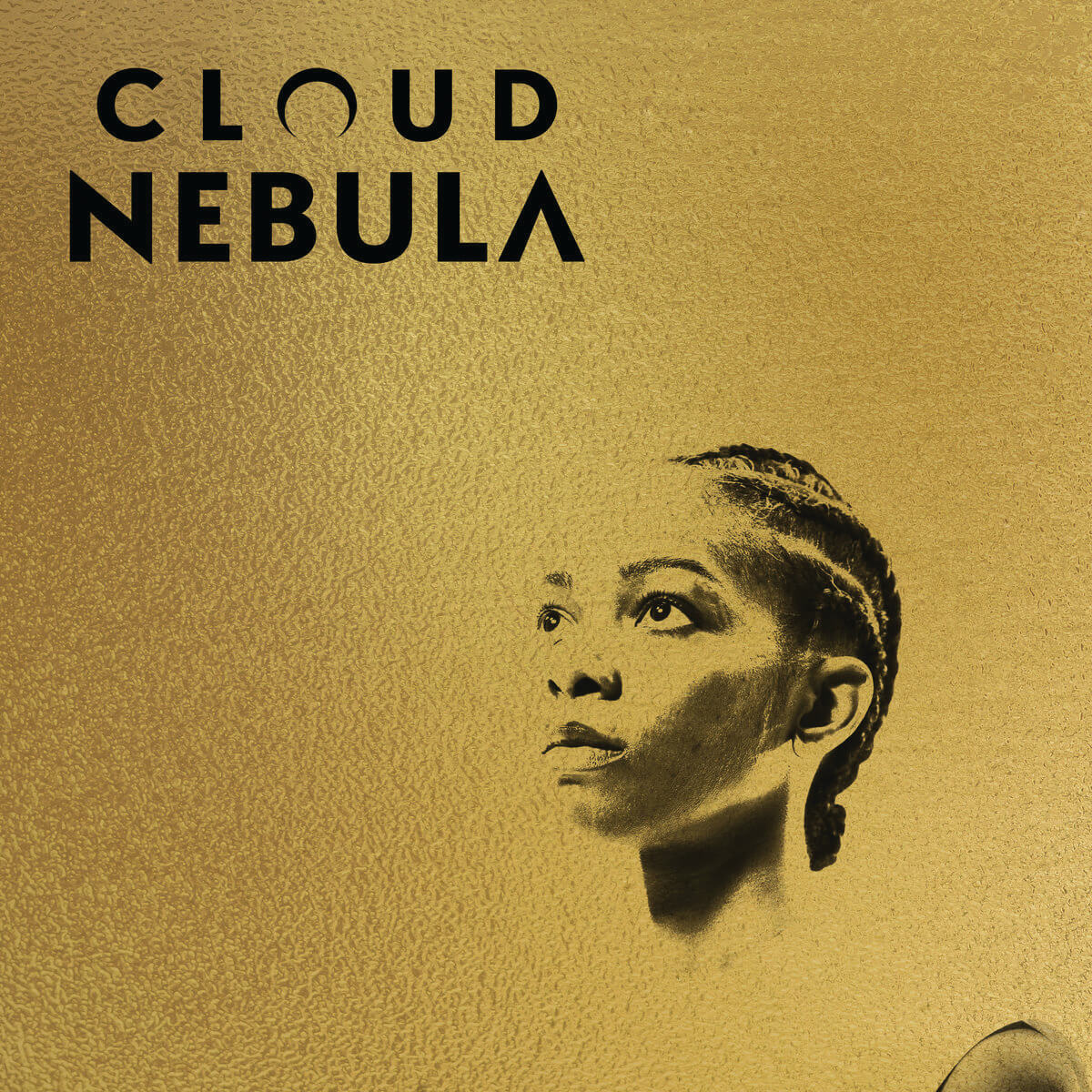Arts & Culture
Afro House Takes Audiences on a Cosmic Journey
With a new album—the euphoric, funk-infused soundtrack to 'Cloud Nebula'—the local art collective’s sci-fi space operas are quintessential Baltimore DIY.

“Futurists.” That’s how Scott and Alisha Patterson describe themselves and their artistic collective, Afro House, which launched in Baltimore in 2013.
For the past dozen years, the married creative partners—he’s a classically trained pianist and she’s a professional arts administrator—have been expanding their horizons. From hosting collaborative in-home concerts and a “100 Year Symposium” conversation series to hatching their more recent, multi-sensory, sci-fi space operas, they’ve become an embodiment of the city art scene’s DIY ethos.
Exhibit A: Cloud Nebula, their latest intergalactic odyssey, presented earlier this year at The Voxel. The three-act work fuses music, dance, theater, and film into a cosmic world of love, hope, and Black liberation. Set in a fantastical, futuristic universe, it chronicles the journey of Jakub, a celestial star in human form, as she guides survivors of her dying planet to the luminous oasis of the Cloud Nebula. Along the way, in an all-too-relatable plot line, she’s confronted by Osei, an artificial dark sun which aims to gain power by swallowing their light.
But for those who missed the shows, fear not. Recorded live, the euphoric, funk-infused soundtrack is now available as Afro House’s debut album, and they’ll be performing at Keystone Korner on November 16. Best of all, the Pattersons are only just beginning their explorations, to infinity and beyond.
Scott, you’re a classically trained pianist, while Alisha comes from a background in arts administration. Where does this desire for experimentation come from within you?
SP: I’m often confused about why there is a separation between experimentation and quote-unquote classical music. When I was in school, we studied Mozart, Beethoven, Chopin, Bach. They’re all innovators. But I grew up listening to and playing all different types of music. My father is a jazz bassist. We love funk. We grew up in church with gospel music. So there’s a hunger for many different sounds in me … At Afro House, we’re futurists. We’re space explorers. We want to boldly go where no one has gone before. I know that’s cheesy, but that’s really us. Musically, we’re always trying to search.
AP: And push boundaries. And not just for pushing boundaries’ sake. But driven by curiosity and always questioning the [status quo].
SP: When you stay too hard in tradition, it can become a mausoleum of what happened before. We’re very much interested in: What’s it going to look like, 100 years from now? I think that’s what it is to be human—to be able to imagine. And if you have just enough power to imagine despair, I choose hope.
Why opera?
SP: Opera can be really big. For us, we are called Afro House. We create futuristic stories about Black people. And one of the things I love about opera is that it lends itself to very gigantic ideas. And it can place Black people in these epic stories, in a way I did not see growing up.
When I was going to school in New York, I went to see Porgy and Bess [which depicts the lives of African Americans in the 1920s] at Lincoln Center. That’s one of the operas I grew up with; my father used to play the music, and the album by Miles Davis and Gil Evans. They were these really big scores, and I just loved it. I wished there was more like it. And I wanted to do that for Black people.


When did science fiction first enter your orbit?
SP: I was eight years old. My aunt took me to see Return of the Jedi. It had just come out in theaters. And it blew my mind. I fell in love with being able to go to another world. For me, film has been the biggest influence. Star Wars. Star Trek. Dune. I love those big space odysseys. And when I started thinking about, well, how can I create stories that are on that scale? Opera stuck out the most as a vehicle.
AP: We’re also raising two Black boys. So we’re thinking about, what role can we play in shaping how they see themselves in the world? How can we help to inform their sense of self by actually producing art that centers Blackness in these vast situations? And us in the future, what could that look like?
And your sons are featured in this performance and on the album—Judah, 14, plays guitar, and Ra, 11, plays saxophone. What was it like creating this together?
AP: It’s been very special to have these experiences with them. This is what we can offer them as parents, whether or not they decide to go into the arts. Like, they now know that it’s possible to do something really big that you’ve never done before. And that a community of people will come together and support that vision. I didn’t see enough of that growing up. And of course, it’s not a big deal to them, they could really care less, but…
SP: We’re old fogies and very uncool. [Laughs.]
Tell us, what is Cloud Nebula?
SP: For me, as a creator, a storyteller, it is the future, and a metaphor. The characters are us, and the task is, how do we get to that future that we know is bright?
AP: And it’s not dystopian. It’s a vibrant story of hope. The album is the same way. We want people to put it on and just be able to be nourished and filled with hope.
What inspired the album?
SP: In creating this score, we were thinking about the experience we wanted to give to people, and I wanted to give as much of myself as I can, and be a complete artist and human being. I love orchestral music, but I also like funk, rock, jazz, and soul. I’m very much influenced by Earth Wind & Fire, and one of my favorite things to listen to is their live albums. … We want to do a vinyl eventually. So that you can put that needle on and just let go.
